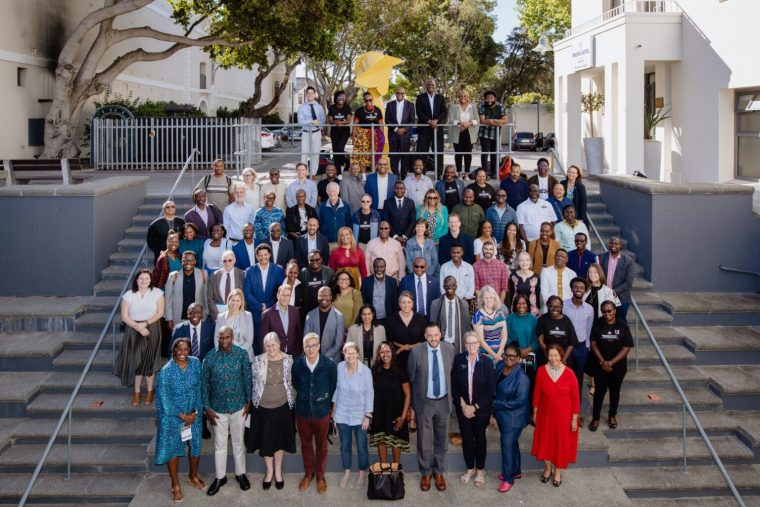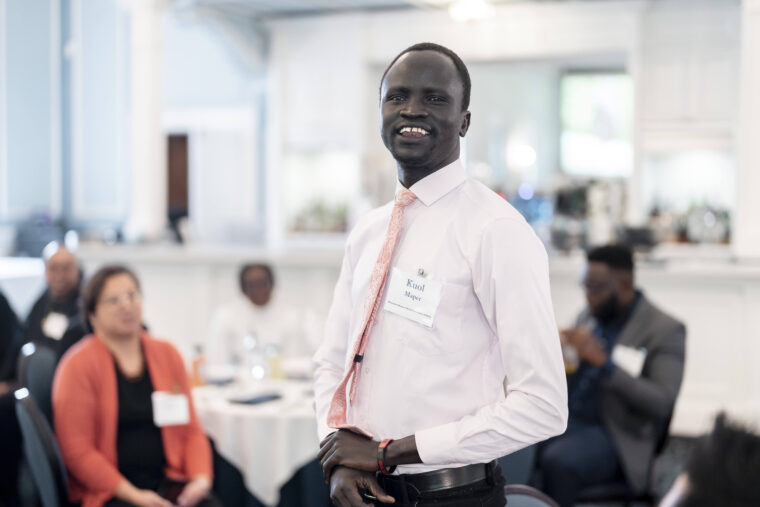This is the story of a young person’s journey from Kakuma Refugee Camp to the WHO – showing how lived experience can drive innovation in global health
My name is Kuol Maper Alier. I was born in South Sudan, but my early life was shaped by displacement, resilience, and a relentless pursuit of purpose.
I began my education in Kakuma Refugee Camp in Kenya, where I completed primary school in 2008. Life in Kakuma was not easy, but it instilled in me discipline, determination, and a vision beyond the camp’s boundaries. With support from the Catholic Diocese of Nakuru, I earned a scholarship to pursue secondary school in Naivasha, a town in central Kenya, from 2009 to 2012.
In my final year, I sat for the Kenya Certificate of Secondary Education (KCSE). I missed the cut-off for a World University Service of Canada (WUSC) scholarship by a single point. That moment could have ended my dream of higher education abroad—but instead, it became a turning point. I refused to let one missed opportunity define me. Instead, it fueled my determination to seek another path forward.
Rising Through Crisis
That determination carried me back to South Sudan in 2013, where I began looking for ways to fund my university education. But later that year, the political crisis forced me into the Mingkaman IDP Camp. What felt like another setback quickly became an opening: I secured a position with the International Rescue Committee (IRC), first as a Monitoring and Evaluation Officer and later as Deputy Program Manager in Ajuongthok Refugee Camp, one of the largest camps in the region.
This work gave me more than employment. It offered an education in how fragile health systems operate under immense strain. I saw how data was collected, but rarely used to improve care. Patients slipped through the cracks, not from neglect, but from weak systems. These lessons stayed with me, shaping the vision I carried into the next chapter of my journey.
Building a Foundation in Data and Statistics
Determined to strengthen my skills, I enrolled at Moi University in Kenya in 2016 to pursue a Bachelor of Science in Applied Statistics with Computing. I graduated in 2021 with Second Class Honours (Upper Division).
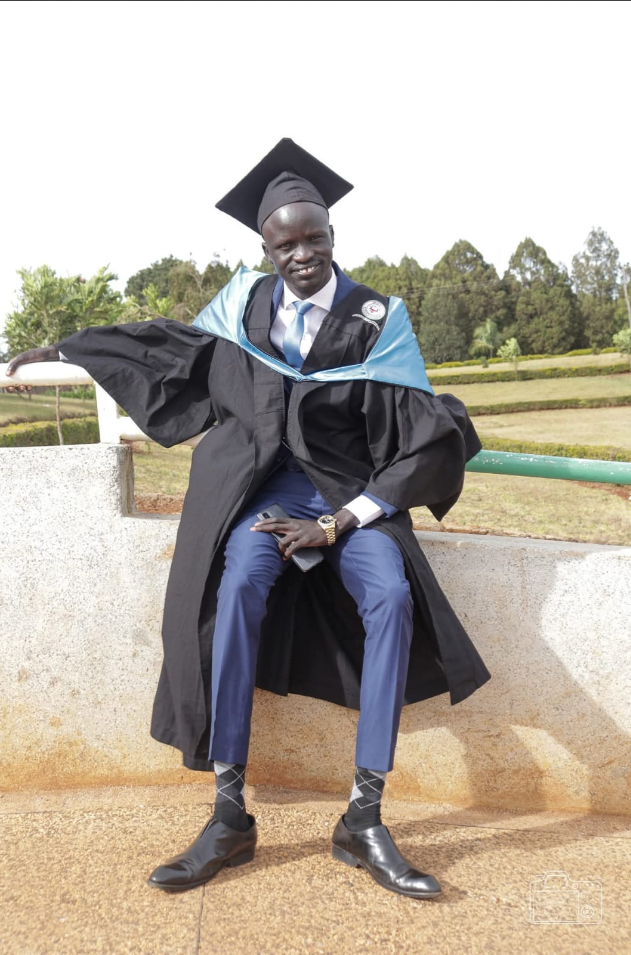
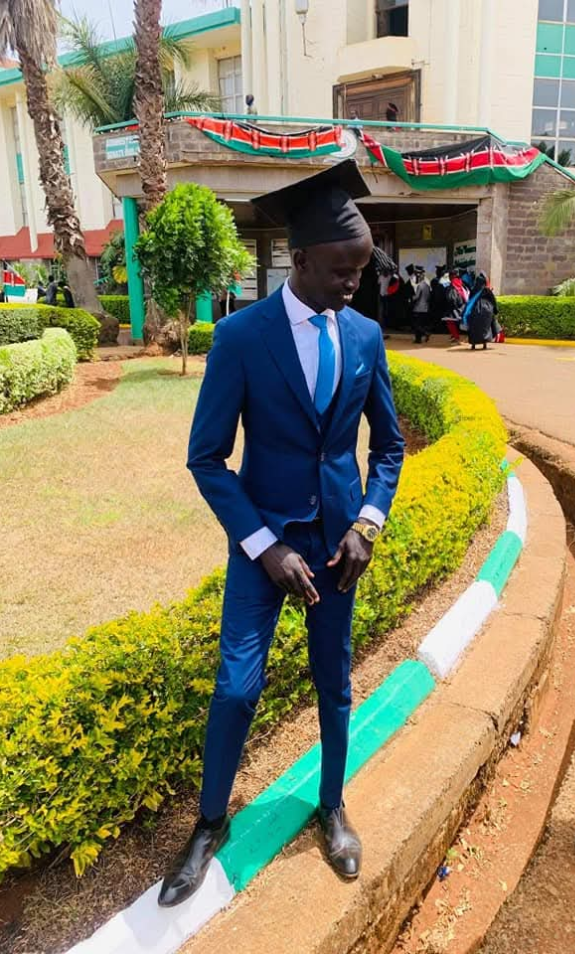
Kuol on his graduation day at Moi University
At Moi, I built a strong technical foundation—but even more importantly, I discovered clarity about my purpose. Numbers alone were not enough. I wanted to apply data to improve health systems and ensure that every statistic translates into real change for real people. That realization set the stage for my transition into public health.
A Personal Loss, A Renewed Mission
As I prepared graduate school applications in 2022, tragedy struck. My sister died from complications of hypertension, just nine months after giving birth. Her death was preventable, and it shattered me. But it also sharpened my mission. Education was no longer only about personal advancement—it became a tool to confront the very challenges that had touched my own family. I knew I wanted to pursue health informatics and create systems that could prevent others from experiencing the same loss. That conviction guided me into the next, life-changing opportunity.
Expanding Horizons: Graduate Studies at the University of Toronto
In 2023, I was selected for the Mastercard Foundation Scholars Program at the University of Toronto, under the Africa Health Collaborative, to pursue a master’s degree in Health Informatics. This was more than financial support—it was a community of visionaries from across Africa who challenged and inspired me.
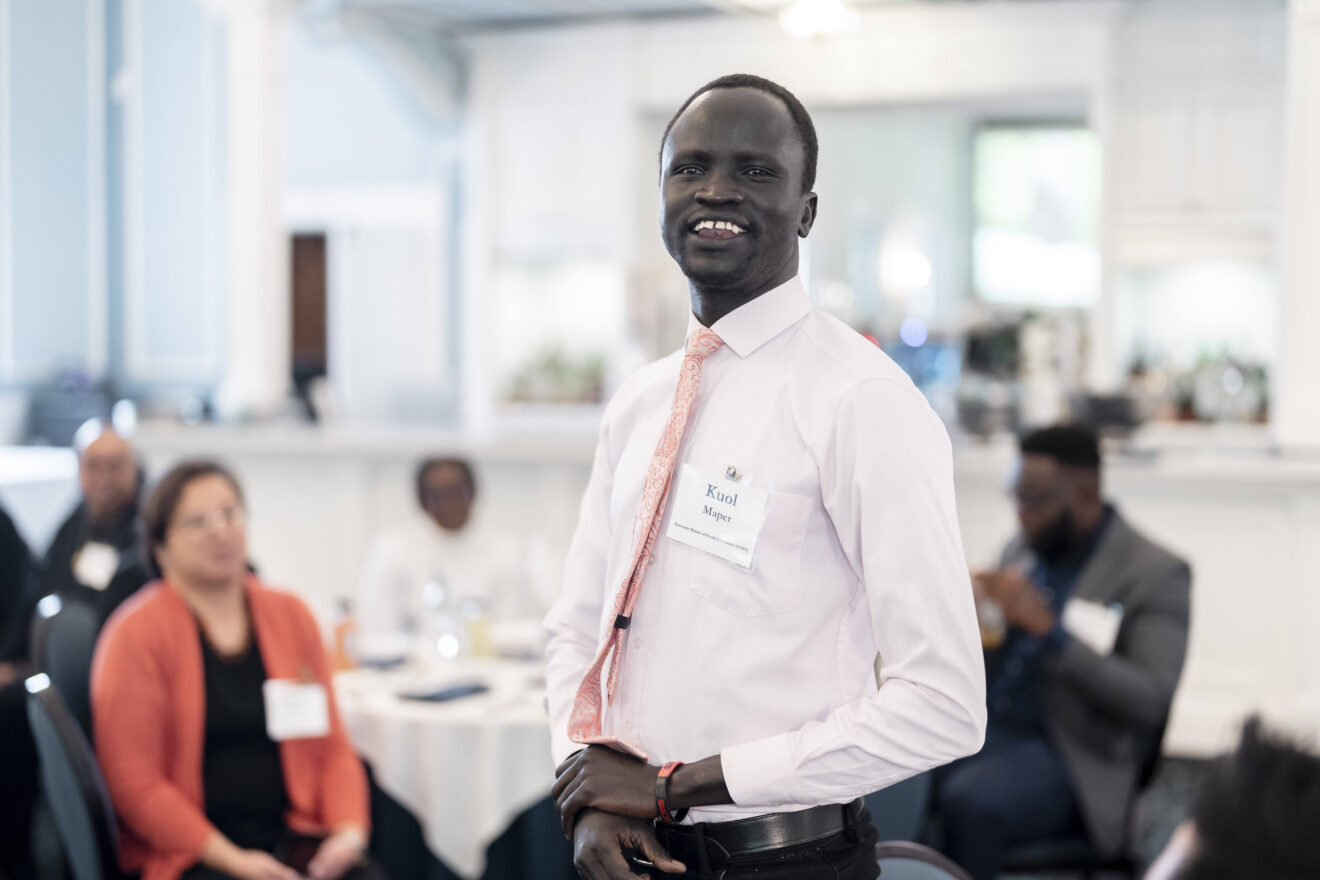
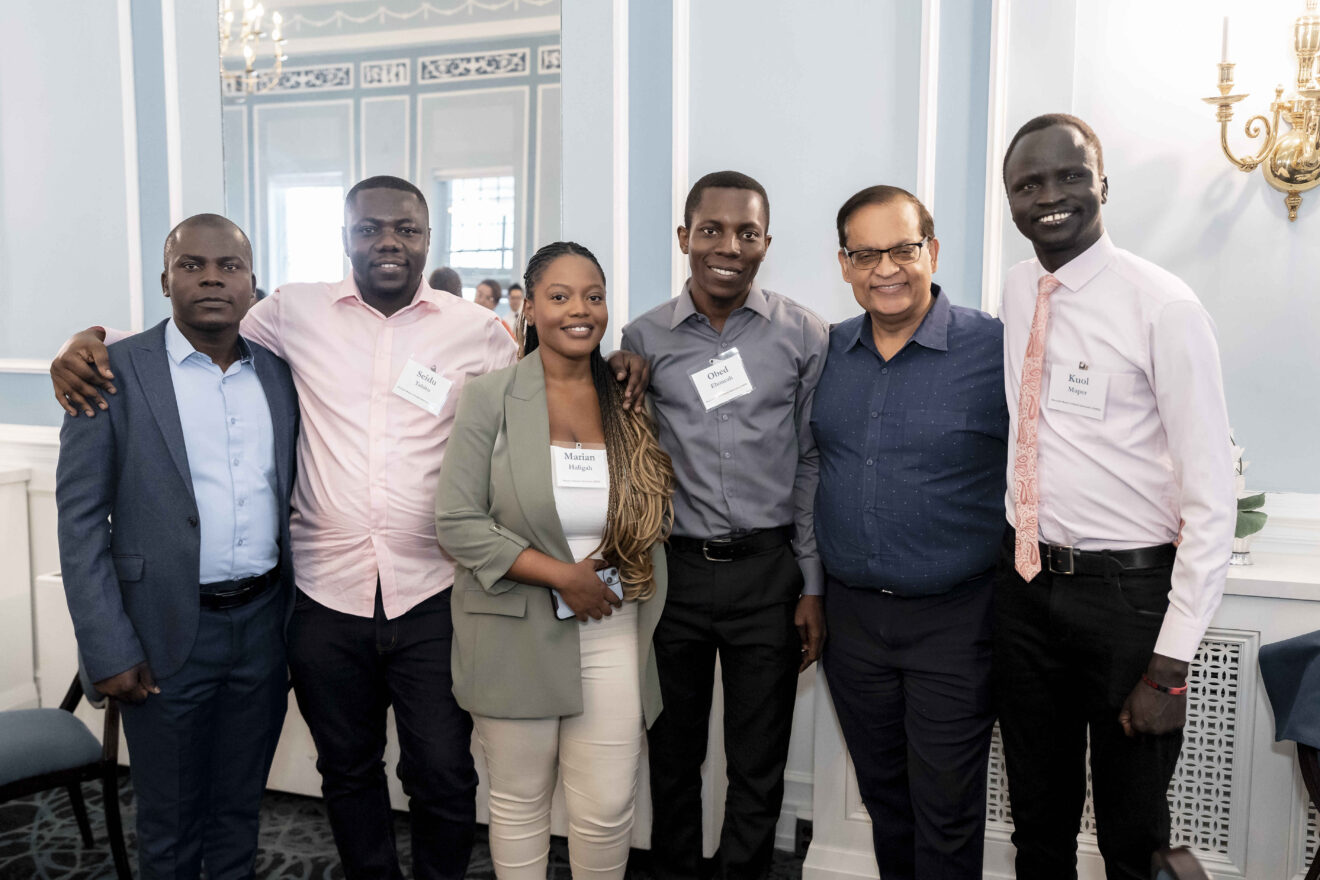
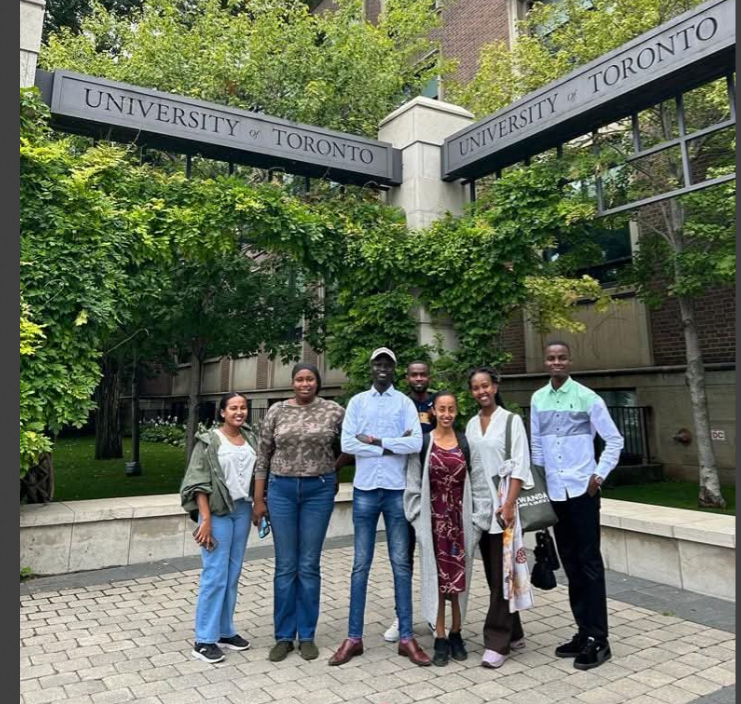
Kuol with colleagues and faculty at the University of Toronto
At Toronto, I turned my personal mission into academic research, focusing on hypertension care in fragile contexts. I proposed a telementoring platform to support health workers in South Sudan, offering a scalable way to strengthen cardiovascular care. I am deeply grateful to those who supported this work, especially Karim Keshavjee, Program Director of the Master of Health Informatics, whose guidance was invaluable. In many ways, it felt like coming full circle: transforming lived experience into solutions that could change lives.
Serving at the World Health Organization
That same spirit guides me today in my role as Data Manager at the World Health Organization. Here, I support health information systems in one of the world’s most complex humanitarian settings. The challenges are immense—poor internet connectivity, fragmented reporting, and data coming in from the hardest-to-reach places. But every challenge is an opportunity to prove what data can do when put to work.
I have seen timely information trigger rapid emergency responses, improve program coverage, and strengthen collaboration among humanitarian actors. One of my proudest moments was contributing to a cholera intervention that prevented a localized crisis through swift resource mobilization. These moments remind me that behind every dataset is a life that can be saved.
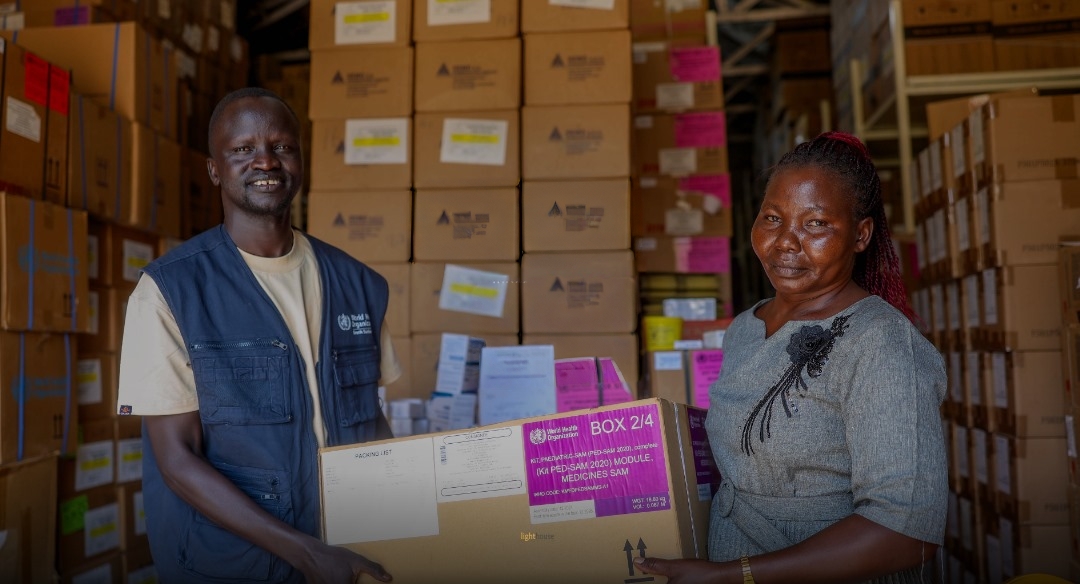
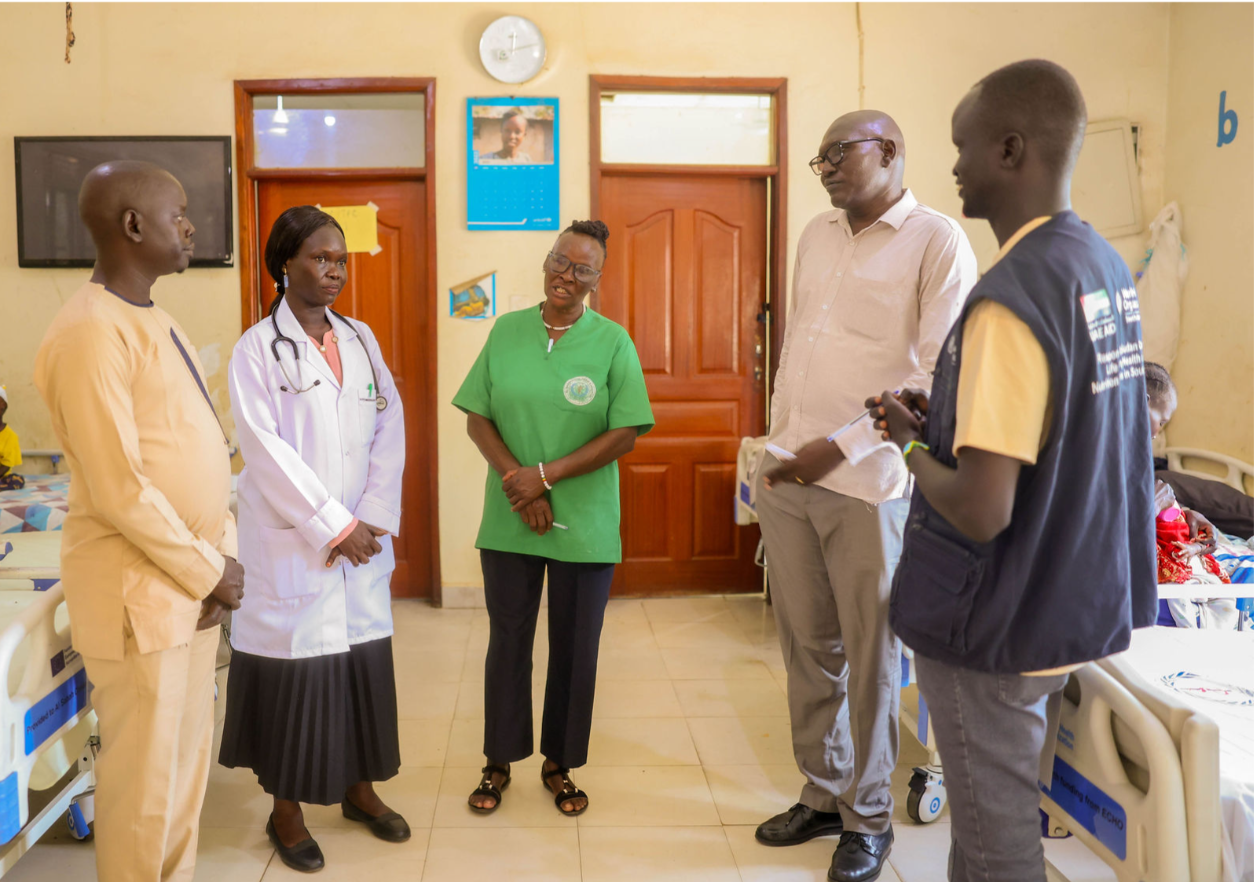
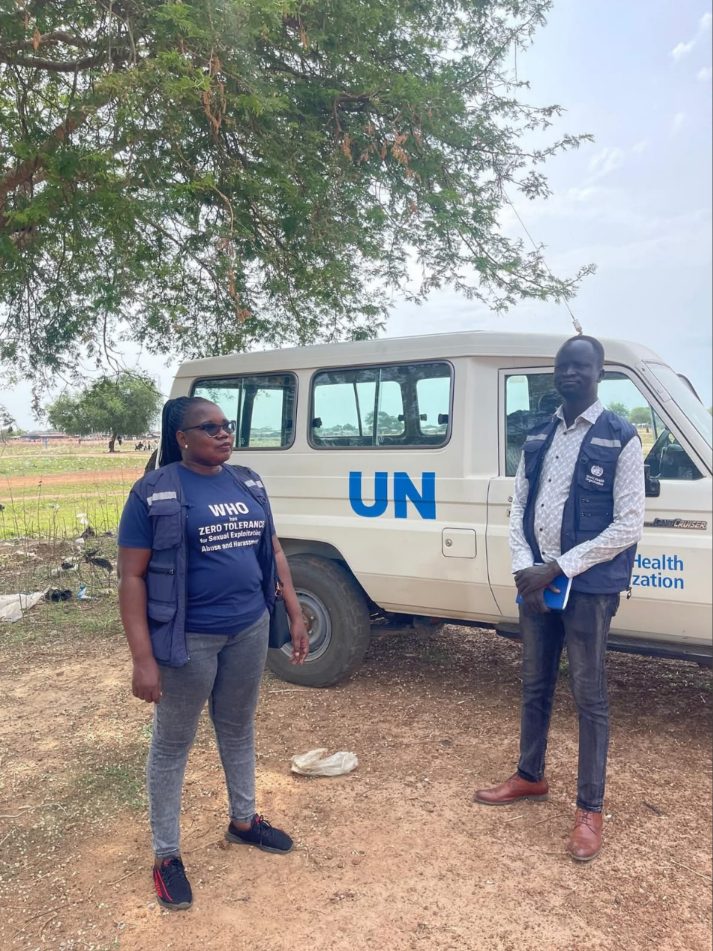
Kuol, serving as a Data Manager with the World Health Organization, supporting field operations.
Looking Ahead
From Kakuma to the WHO, my journey has been shaped by setbacks, resilience, and the relentless pursuit of purpose. Each chapter prepared me for the next: the discipline of Kakuma, the leadership of IRC, the skills from Moi University, the clarity brought by personal loss, and the access at the University of Toronto.
But at the heart of it all is my experience as a displaced person. Growing up in refugee and IDP camps gave me firsthand understanding of what it means when health systems fail—and what it takes to keep hope alive in fragile contexts. That lived experience continues to inspire my work today and fuels my determination to build systems that leave no one behind.
Looking forward, I want to deepen my contributions to digital health and health system strengthening in fragile contexts. My vision is to integrate community-based data, real-time analytics, and predictive systems to make healthcare more equitable and effective.
The Mastercard Foundation did not just fund my education; it expanded my capacity to serve and inspired a commitment to empower others through data-driven change. My journey from displacement into purpose is proof that where you begin does not define where you can go—and I hope it encourages other young people with similar beginnings to see their experiences not as limitations, but as fuel to transform communities.
Learn more about the Master of Health Informatics program at the University of Toronto under the Africa Health Collaborative.
More News & Events
Skip scroller contentDignity, Data, and Disruption in Africa’s Health Systems: A Young Leader’s Reflection
John Nyagaka, a Mastercard Foundation Scholar and AHC Young Leaders Table Chair, reflects on his transformative experience at the 2025 Annual Convening.
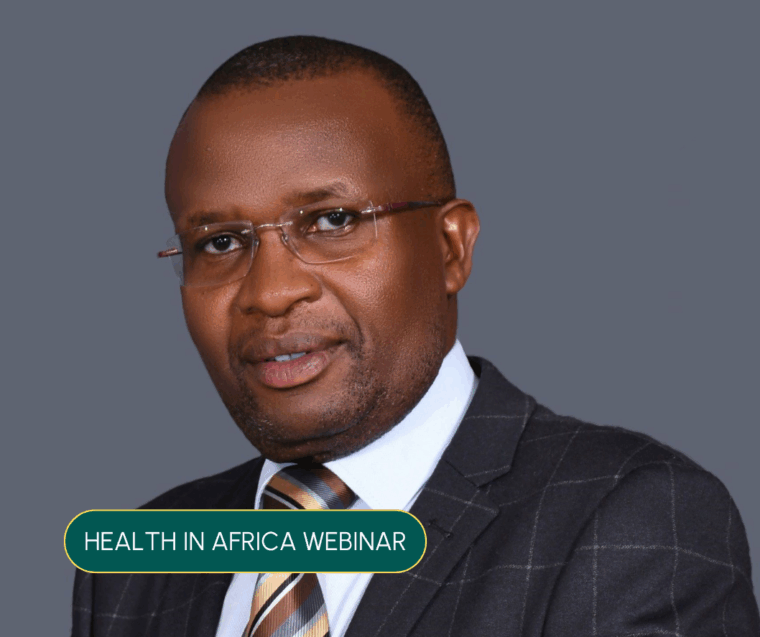
What Works: Improving Maternal and Newborn Health in Kenya and Ethiopia
Join this webinar to explore how community-led systems and digital innovations, in partnership with local leaders, are scaling sustainable healthcare impact and delivering life-saving care for mothers and their newborns.
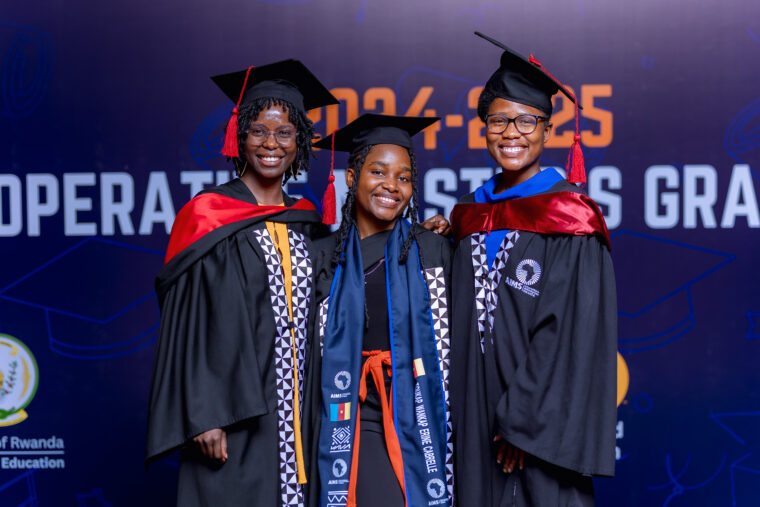
Apply for the AIMS Master’s in Mathematical Epidemiology (MathEpi) Scholarship
Apply for the 2025 AIMS MathEpi Master’s program. Fully funded scholarships for African students in statistics and public health. Deadline: March 15.

Apply for KNUST’s CPD-Eligible Short Courses in Health Systems and Services Management
Applicants must meet the following requirements to qualify for the scholarship: Short Courses and Timelines 23rd – 27th February 2026: Emergency Preparedness and Response to Epidemic/Pandemic-Prone Diseases 10th – 14th February 2026: Community Emergency Care 24th – 27th February 2026: Palliative Care Module 1 23rd – 27th March 2026: Introduction to Healthcare Quality Improvement (IQI) […]
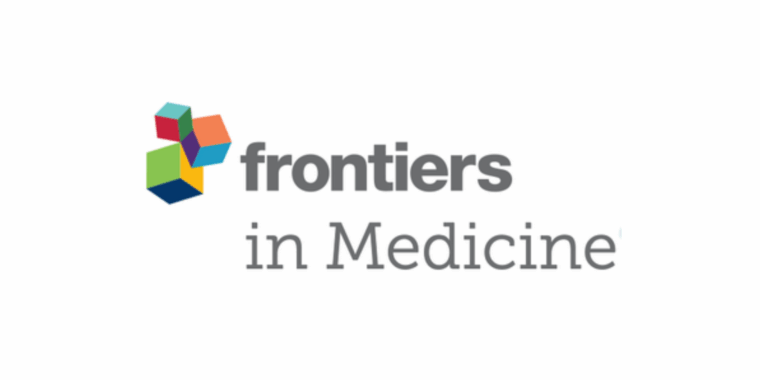
Call for Insights & Stories: Frontiers Opens Special Collection for AHC Partners
The Africa Health Collaborative (AHC) is pleased to share an exciting opportunity for all AHC institutional partners to share original research, reviews, case studies, policy briefs, perspectives, and reflective pieces in a new article collection titled “United in Partnership: Academic Collaborations for Primary Health Care Transformation” by Frontiers in Medicine. This special collection is being […]
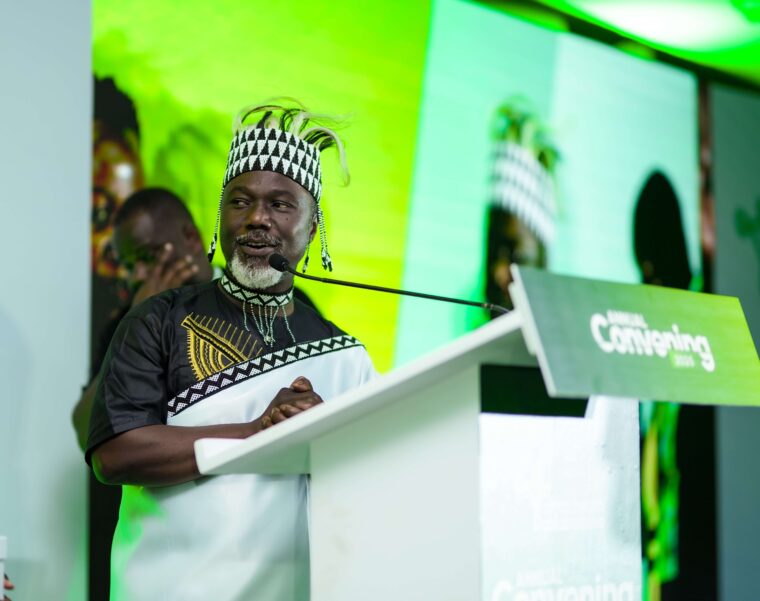
A New Chapter of Collaboration: AHC Welcomes Prof. Joachim Osur as Executive Steering Committee Chair
The Africa Health Collaborative (AHC) has announced Prof. Joachim Osur, Vice Chancellor of Amref International University, as the new Chair of the Executive Steering Committee (ESC). The symbolic handover took place during the closing ceremony of the 2025 AHC Convening in Rwanda, held in October 2025. This marks a significant leadership transition from Prof. Nhlanhla […]
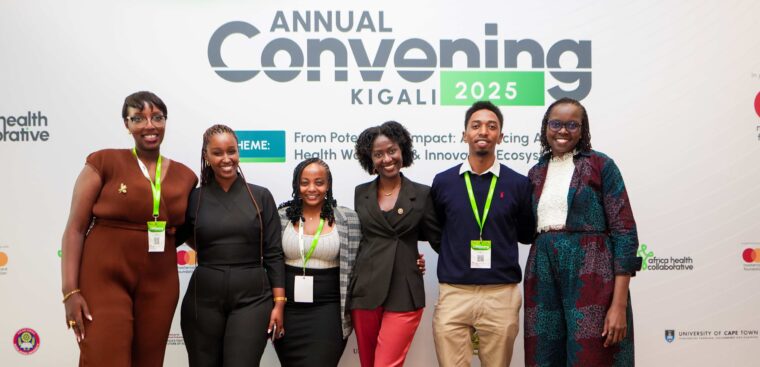
Africa Health Collaborative 2025: Driving Transformative Change in Primary Healthcare Future
Last October, over 170 policymakers, health experts, academics, and youth innovators from 14 countries came together for the Africa Health Collaborative’s (AHC) 2025 Annual Convening, hosted by the African Leadership University (ALU) in Kigali, Rwanda.
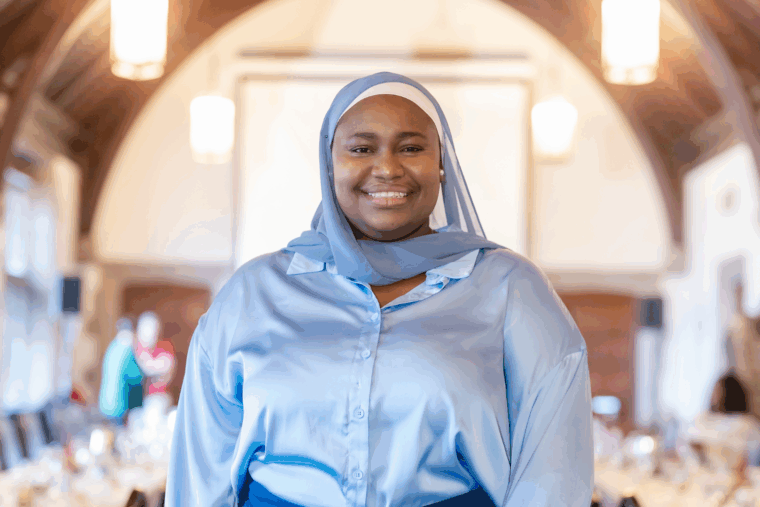
Engineering Dignity: Designing Low-Cost Prosthetics in the University of Cape Town’s MedTech Lab
Read about how Jemila Abdulai’s internship at UCT’s MedTech Lab strengthened her commitment to human-centered engineering, demonstrating how affordable innovations like the ADL Arm can expand access, restore dignity, and transform lives in underserved communities.

Graduate Scholarship Opportunities at the Kwame Nkrumah University of Science and Technology
Apply for graduate (MPh, MSc, MPhil, PhD) scholarships at the Kwame Nkrumah University of Science and Technology.
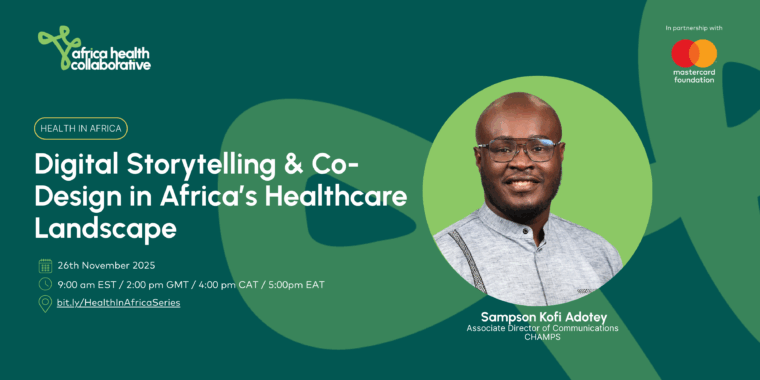
Digital Storytelling & Co-Design in Africa’s Healthcare Landscape
Join this webinar to explore how Digital Storytelling (DST) and Co-Design can transform health systems by centering the people who live the stories.
